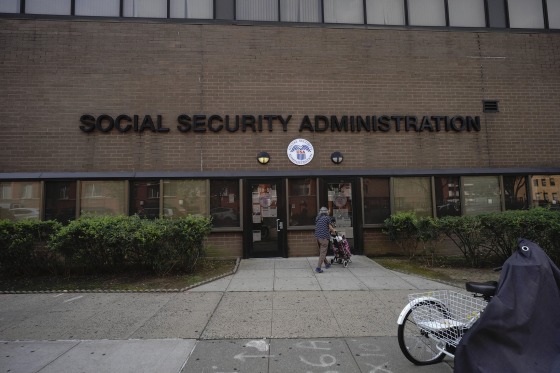
Millions of government workers would not be paid if the federal government shut down on Friday, and operations at many publicly sponsored institutions would slow down or cease completely.
However, Social Security payments would continue to be made.
The shorter-term continuing-resolution measures that have kept the government running in recent years amidst political impasse in Washington do not pay Social Security, which is seen as a required program.
Social Security benefits are paid to over 72.8 million people each month. Retirees receive the majority of such payments, but disabled individuals and the dependents of dead pensioners also receive them.
Benefit checks will continue to be sent, but if SSA staff start to be furloughed, those who need to get in touch with the agency for help may have to wait longer. It would also impact new card issuance, processing overpayments, and benefit verifications.
Since House Republicans opposed boosting SSA money in the September continuing resolution, personnel at the agency is already at a 50-year low.
Although they wouldn’t be impacted immediately, other federal welfare programs might be if a shutdown continues.
Supplemental Nutrition Assistance recipients—previously referred to as food stamp recipients—would keep their benefits for 30 days. Furloughs at the U.S. Department of Agriculture, which runs SNAP, might then start to affect how payments are distributed if the program begins to rely on reserve cash.
Those who receive aid under the Special Supplemental Nutrition Program for Women, Infants, and Children, or WIC, may be the most vulnerable. The majority of those receiving aid under this program are low-income pregnant women, new moms, and their infants and young children.
There is typically only a certain amount of emergency funds available for this program, after which WIC officials start to prioritize assistance for those who need it the most.
Shutdowns have affected numerous other government functions in the past. The Committee for a Responsible Federal Budget claims that during the 2013 shutdown, the Environmental Protection Agency (EPA) stopped inspecting 1,200 sites and the Food and Drug Administration (FDA) postponed about 900 inspections. Operations at National Parks were also severely affected: although several parks remained open, no amenities for visitors were offered, and numerous locations reported damage and rubbish accumulation, according to the group.
This time around, the biggest possible impact might be on air travel as the hectic holiday traveling season intensifies. Many travelers had longer wait times during the 2018–2019 shutdown as a result of Transportation Security Administration agents not showing up for work and ground stops at major airports such as New York LaGuardia due to a lack of air traffic controllers.
A TSA representative warned in a statement that a lengthy shutdown may result in lengthier airport wait times and that its employees would be working unpaid while managing record volumes for Christmas and New Year’s.
A prolonged closure would eventually start to hurt the economy. The Congressional Budget Office calculated that the longest shutdown, which lasted for 35 days from December 22, 2018, to January 25, 2019, cost the American economy at least $11 billion in direct costs, with indirect costs more difficult to measure.
Note: Every piece of content is rigorously reviewed by our team of experienced writers and editors to ensure its accuracy. Our writers use credible sources and adhere to strict fact-checking protocols to verify all claims and data before publication. If an error is identified, we promptly correct it and strive for transparency in all updates, feel free to reach out to us via email. We appreciate your trust and support!
